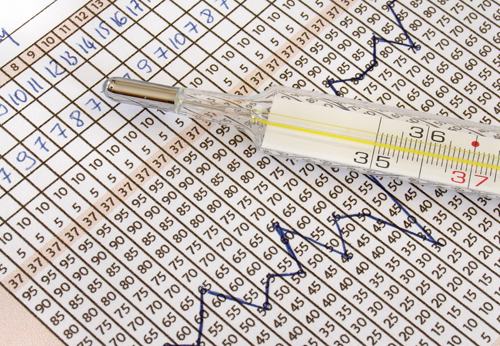Fertility charts and ovulation calendars are the stuff of Hollywood sitcom puns or the real life nightmare of those coping with infertility problems. Yet couples having difficulties conceiving are not the only people who stand to benefit from the use of a simple fertility chart.
What is Charting?
Charting is simply recording the progress of the female reproductive cycle. Everyone could rattle off facts about how a woman’s menstruation cycle works: it rotates on a (typically) 28 day cycle moving from ovulation to menstruation. But these average stats do very little to help when your body does not fit the average mold.
How the Cycle Turns
The average period lasts five days, and ovulation occurs on average on day 14 with bleeding beginning on day 28 unless conception throws the body into a completely different process altogether. Just because the average is 28 does not mean your body will follow that schedule exactly. Menstruation cycles lasting anywhere from 24-32 days are considered perfectly normal.
A few days' difference might not seem like a lot, but it really is. The egg released during ovulation each month is only viable for a short 12-24 hour window. This means having a cycle only one day off average can seriously hamper efforts at getting pregnant.
Getting Started With Charting
The first place to start charting is just making note each month when the first day of the menstruation phase of the reproductive cycle begins. Following this process for several months will show you how long your personal cycle is and gives you a jumping off point.
Advanced Charts
There are many more items that couples truly trying to get pregnant track to increase their chances. Evaluating basal body temperature daily and noting changes in cervical fluid are more advanced processes, and they can be helpful for women who are having difficulty getting pregnant.
Why Bother?
Why should anyone bother with a fertility chart? For one thing, fertility is not just a matter of procreation. It is an indication of personal health. If the body is not following a regular menstrual cycle it may be an indication of poor health. Noticing changes in events that occur only monthly can be difficult when memory is the only source of data being kept.
A simple chart will aid any woman concerned about her reproductive health. An additional benefit may be found when the time comes to think about babies; having a base of knowledge regarding personal fertility become invaluable.
Fertility charting is not just for those who want to be parents. It really is a basic tool of womanly health upkeep. When viewed as such, other aspects of female health naturally become a part of your chart. Self breast exams, for example, are easily forgotten, but with a chart to serve as a reminder the chances of regular adherence are greatly enhanced.
Keep your chart simple. A calendar will do. Jot down key dates such as the beginning of menstruation and a reminder for breast exams and doctor visits; remember to keep updating the notations from month to month. The effort is well worth your while.
Fertility Tracking Apps
With the growth of the internet, many fertility tracking apps have popped up to aid women, whether they are trying to get pregnant or are just looking to track their period. These apps are very tempting, since it makes the process of charting easier for many. You also don't have to worry about keeping track of the notebook where you chart.
When considering a fertility tracking app, make sure that the app has appropriate privacy protections in place. Some apps share your data not only with advertisers, but with government agencies. You deserve to have privacy regarding your health, so avoid any apps that don't take the necessary steps to protect your information.
Try out a few different charting apps to find the right one for you. Some apps are geared specifically toward women trying to get pregnant, while others are designed more for those who simply want to track their period. Some women who do not want to get pregnant may even use a fertility tracking app to help them know when they should be extra careful.
Regardless of how you choose to chart, keeping track of your fertility is useful for every woman. Whether you're tracking for your health, because you're looking to get pregnant, or because you don't want to get pregnant, the process can help you stay in control of your health and your body. Talk to your OBGYN if you have any concerns about your fertility or menstruation cycle.
